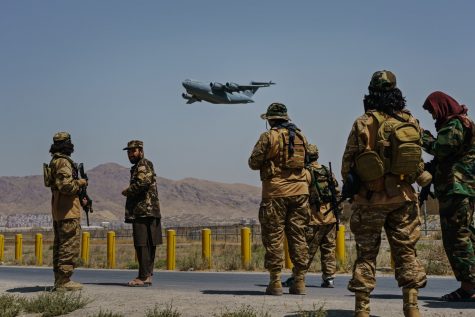Withdrawing US Troops was the Best Choice

Twenty years after the 9/11 attacks of Al Qaeda triggered the US’ war in Afghanistan, a long overdue question lingered: what was the US still doing in Afghanistan? Trillions of dollars had already been spent, and Osama Bin Laden was killed almost a decade ago. That was until February 2020, when the US and Taliban met to form a peace agreement which guaranteed the safety of the US on the condition that they withdraw from Afghanistan. While this would finally bring peace, one thing was certain: this was not the victory the US had dreamt of.
In April 2021, President Biden announced his plans to fully evacuate from Afghanistan by September 2021, beginning in July. A few weeks into this withdrawal, however, the Taliban took almost full control of Afghanistan, including the capital city of Kabul. Biden’s decision sparked immediate criticism due to the unexpectedly fast advance of the Taliban. Despite these criticisms, though, Biden’s complete withdrawal of the US military was the best course of action for the U.S — a realistic strategy to bring an end to a long and futile war.
What if the military decided to stay in hopes of keeping the Taliban at bay and better prepare Afghanistan for a Taliban invasion? The US has already spent trillions of dollars in military and infrastructure aid in Afghanistan over the past twenty years. There is no clear resolution left for the military, and choosing to remain would only mean staying indefinitely. Staying indefinitely with the hope of fending off the Taliban is impractical as it goes against the peace agreement made and risks further endangerment of US soldiers. Already, on August 26th, a suicide bombing attack carried out by terrorist group ISIS-K killed thirteen US troops who had not fully evacuated the country. Evidently, the situation for the military would only have gotten increasingly perilous, making withdrawal the safest option for the US to have pursued.
Furthermore, not only would remaining in Afghanistan be harmful for the US, but simply unproductive. A common criticism of Biden’s withdrawal is that his plan was not well thought-out because of how easily the Taliban gained control. However, the advancement of the Taliban only confirms that the right decision was made: given the speed of the Taliban forces, it is clear that they were prepared to take over the country at whatever moment the US left. Staying would simply delay the inevitable. Whether the US decides to stay for two or twenty more years, the Taliban were prepared to reconquer the country as soon as the US left.
While the implications of Afghanistan’s future may seem grim, the continued commitment of the US (as well as other members of the international community) will likely ensure that the situation will not become as dire as it was twenty years ago. The Taliban hope to legitimize their rule and prove they have brought peace to Afghanistan by promising equal rights for women and cracking down on terrorist groups within the country such as the aforementioned ISIS-K. The G-7 will view the legitimacy of the Taliban based on their ability to “uphold its international duties,” with Boris Johnson stating the Taliban government will not be recognized unless citizens are allowed to freely leave the country.
Although this situation is far from perfect, it is the best resolution to a war that was lost a long time ago.





